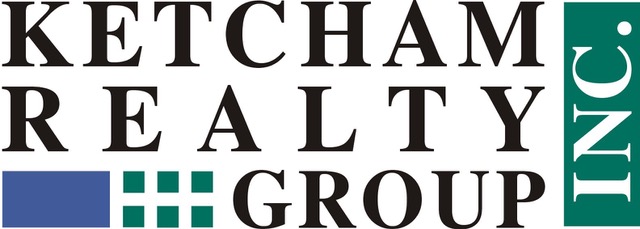The five most important things to think about solar panels.
Whether you are considering installing them on your home or thinking of buying a home with them already installed, let’s talk about what to consider with solar.
1. What is the value of a solar energy system? Do homes with existing solar panels tend to be more difficult to sell? Do solar panels increase a home’s value?
In Tallahassee, the appraisers do not give any credit for an installed solar system. That means that, in the appraiser’s professional opinion, solar panels do not add any value to the home’s sales price. It is essential to know whether there is a loan on the solar system because the loan will become a cloud on the title. Clouds must be cleared by the seller before the home is transferred to new owners. Solar companies will tell homeowners that the buyer can take over the payments, but that’s not how that works. The buyer may not qualify or agree to take over the loan. Since the panels are not adding value, why would buyers agree to pay additional money (monthly) on top of the sales price?
Our experience tells me that houses with solar panels may take longer to sell. Some buyers are not comfortable with them, and they have lots of questions. Anytime a buyer has questions and hesitates, they are less likely to make an offer.
We worked with buyers that were going to make an offer on a home with 12kw solar system. The sellers expected the buyers to take over the payments on the solar system after the sale. It was also disclosed that the sellers had received solar system rebates but did not pay down the loan with them. The buyers were disgusted by the seller’s greed and moved on. The house did sell at a lower price, and the sellers paid off the system at closing.




2. There may be additional insurance requirements for a home with solar panels.
If the system has a battery array, the house may be ‘off-grid’ and not need to be hooked to the power company for any reason. However, if there are only solar panels and not batteries, the house must maintain its connection to the utility company. This means two things. One, there is a potential to send power through the line that a lineman expects to be dead during a power outage. That’s a huge safety concern. Even though there are automatic safety mechanisms in place to disconnect the system from the grid, there is still potential for electrocution. For this risk, the utility company may require you to purchase an insurance policy to cover them in case of injuries or damage that may be caused by the solar system. For example, Talquin Electric and Tri-County Electric in north Florida require a million-dollar indemnification policy for any system bigger than 10kw.
And two, without the batteries, there will always be a utility bill even if you produce more than the energy than you use. Without batteries, you will use electric overnight and the companies buy back the energy at such a low rate, it would be hard to produce more than you use with a 10kw system. On top of that, there is a fee to maintain an account with the electric company. Our local utility company charges us $30 a month to be connected to the system, even if we ended up using none of their electricity.
3. Where are the solar panels placed? Can they be easily cleaned and maintained?
If the solar panels are not kept clean, the solar cells must work harder to produce energy. This will shorten their lives and diminish return over time. This is one reason to keep them from being placed on the roof. The biggest reason is that anything that punctures the roof will cause leaks if not properly maintained. If the solar panels last 30 years and the roof needs to be replaced in 10 years, then it doesn’t make sense to put the solar panels there.
We sold a house with a roof replaced by a carpenter after the 2005 hurricanes swept through. This carpenter was not a licensed roofer. If he had been, he might have known that how he was nailing the shingles would make them leak. By 2015, the whole roof and sheathing needed to be replaced. For this same reason, solar panel installers should not be installing roofs too.


4. Sellers, if you lease the solar panels and system, be sure to read the fine print. For buyers, the solar panels can be removed before closing.
The new homeowner can have unwanted solar panels removed. If there is a lease contract for the solar panels, it should be addressed in the sales contract. Most solar lease contracts have a buyout or easy termination clause that will allow a homeowner to end services. If there is no lease, the owner can have them removed by an electrician at any time.
We have seen locals sell their unwanted solar panels at flea markets and online. If the homeowner does decide they do not want the solar panels, they should hire a professional to disconnect the system from the house. Getting it wrong is deadly.
5. Anything else I should know about solar panels? Yes, have the solar panel system installed and inspected by a specialist.
Talk to at least three industries before buying a home with a solar system.
- Insurance agents and companies have opinions about the risk posed by solar energy. Their recommendations and costs will depend on the size of the system and where it is located. Some homes are not insurable if the solar systems are too old, too big, or placed on a roof.
- Speak with your local utility company. Ask them about service fees and insurance requirements. When we were looking at installing solar, we called and had a conversation with a lineman supervisor about the pros and cons. He gave us great questions to ask.
- Have the system inspected by a specialist. Not all home inspectors are familiar with how solar systems are wired. Spotting potential issues takes a specialist. It is worth the hourly rate they will charge to have them review the system. An electrician we hired found a massive code violation that a home inspector missed.
We sold a house with a generator that was wired by the owner. Unfortunately, how it was wired is exactly why the power companies required insurance indemnification for large solar systems. That wiring issue was missed by the regular home inspector. The electrician found the backfeed potential and almost had a heart attack.





